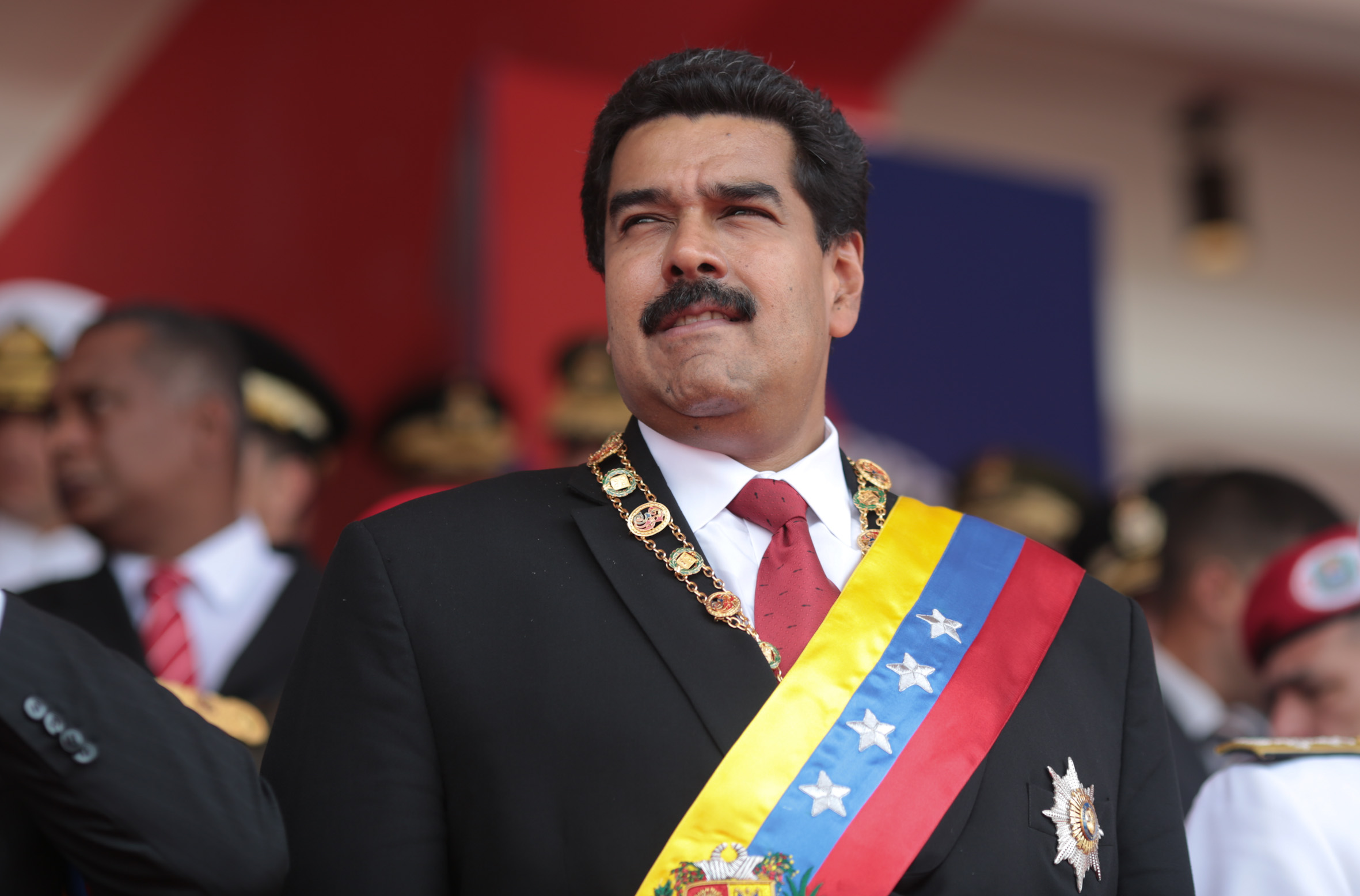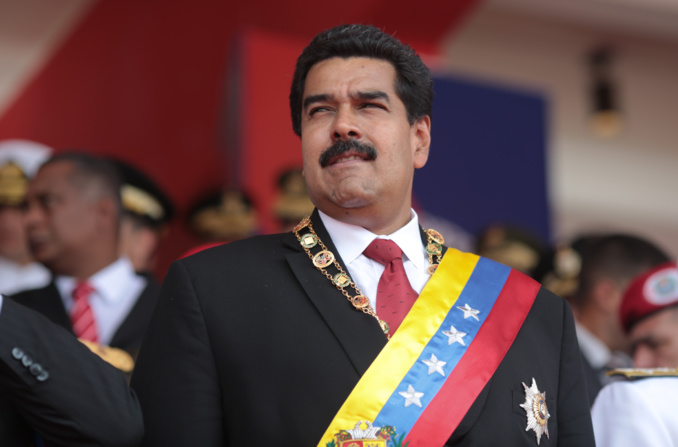The Wall Street Journal reports that in an attempt to circumvent US sanctions, the State Oil Company of Venezuela, PDVSA, informed its partners of its intention to open accounts in the euro and other currencies. Although there was no official announcement about the new payment policy, last Friday Vice-President Tarek El Aissami hinted that a basket of currencies would appear to fight the economic blockade, which would make it possible to get away from the dollar.
President Nicolas Maduro also said that Venezuela will use other currencies: the Russian ruble, the yuan, the Indian rupee, the euro and the Japanese yen. Note that the statements of the Venezuelan authorities followed shortly after the BRICS summit, where the heads of states spoke out against the growing protectionism and financial constraints in the world with obvious political implication, which, in fact, are aimed at eliminating competitors.
Nicolas Maduro: "I declare that Venezuela is going to introduce a new international payment system and create a currency basket to get rid of the dollar and, together with such freely convertible currencies as the yuan, yen, rupees, international currencies, to get rid of the clutches of the dollar - the currency that chokes our country ".
Recall that Venezuela has the world's largest oil reserves. However, this raw material is quite heavy and is mined in modest quantities. For example, according to the latest data, the average daily production is around 2 million barrels per day. Of these, about 1.2-1.3 million barrels are exported, most of which goes to the United States. The United States buys from Venezuela an average of 725 thousand barrels a day.
In addition, major changes in the world oil market can occur soon. A futures contract for oil, nominated in RMB, will be launched in Shanghai, with the possibility of directly converting the currency to gold.
In June and July, Shanghai International Energy Exchange carried out necessary preparatory work, as well as a test auction, and now begins to train potential participants. This will be China's first commodity futures contract, open to foreign companies, such as investment funds, trading houses and oil companies.
Considering the fact that China is the world's largest oil importer, this contract can become a new benchmark for traders, only this time it will be based in Asia.
These futures are of the greatest interest for countries in respect of which the United States conducts an aggressive foreign policy: Venezuela, Iran, Qatar and others. And here’s another very important point: China is likely to use levers of pressure, stating that those who do not want to sell oil through a new contract will lose their share in the Chinese market.
source: wsj.com
President Nicolas Maduro also said that Venezuela will use other currencies: the Russian ruble, the yuan, the Indian rupee, the euro and the Japanese yen. Note that the statements of the Venezuelan authorities followed shortly after the BRICS summit, where the heads of states spoke out against the growing protectionism and financial constraints in the world with obvious political implication, which, in fact, are aimed at eliminating competitors.
Nicolas Maduro: "I declare that Venezuela is going to introduce a new international payment system and create a currency basket to get rid of the dollar and, together with such freely convertible currencies as the yuan, yen, rupees, international currencies, to get rid of the clutches of the dollar - the currency that chokes our country ".
Recall that Venezuela has the world's largest oil reserves. However, this raw material is quite heavy and is mined in modest quantities. For example, according to the latest data, the average daily production is around 2 million barrels per day. Of these, about 1.2-1.3 million barrels are exported, most of which goes to the United States. The United States buys from Venezuela an average of 725 thousand barrels a day.
In addition, major changes in the world oil market can occur soon. A futures contract for oil, nominated in RMB, will be launched in Shanghai, with the possibility of directly converting the currency to gold.
In June and July, Shanghai International Energy Exchange carried out necessary preparatory work, as well as a test auction, and now begins to train potential participants. This will be China's first commodity futures contract, open to foreign companies, such as investment funds, trading houses and oil companies.
Considering the fact that China is the world's largest oil importer, this contract can become a new benchmark for traders, only this time it will be based in Asia.
These futures are of the greatest interest for countries in respect of which the United States conducts an aggressive foreign policy: Venezuela, Iran, Qatar and others. And here’s another very important point: China is likely to use levers of pressure, stating that those who do not want to sell oil through a new contract will lose their share in the Chinese market.
source: wsj.com



















